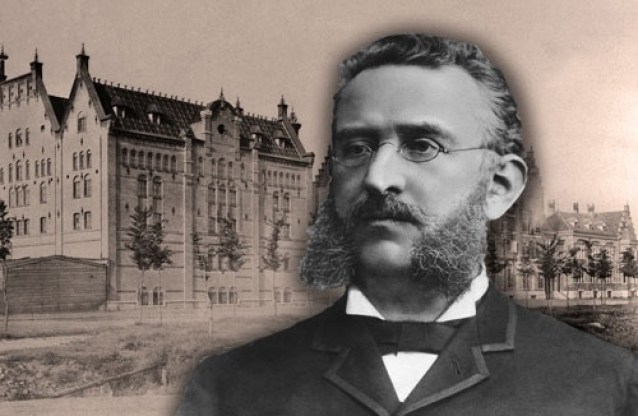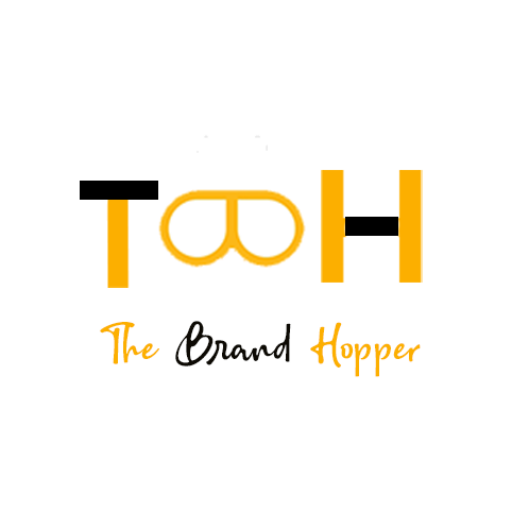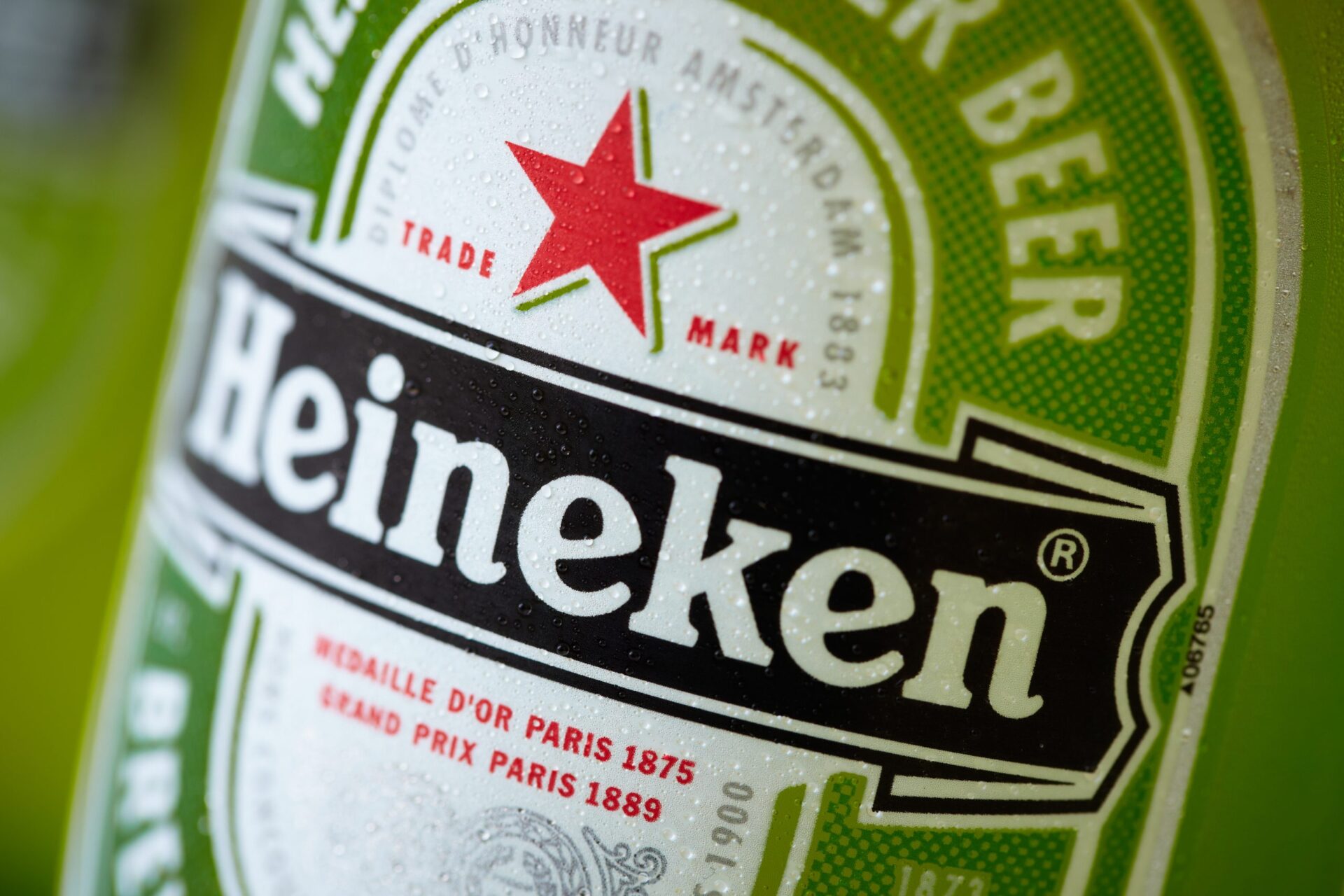Heineken is a well-known international beer brand that originated in the Netherlands. Established in 1864 by Gerard Adriaan Heineken, the company has grown to become one of the largest and most recognizable beer producers globally. Heineken is renowned for its distinctive green bottle, iconic red star logo, and high-quality brewing standards.
The brand’s flagship beer, Heineken Lager, is a pale lager known for its crisp and refreshing taste. It is brewed using a unique recipe that combines malted barley, hops, water, and a specific strain of yeast. Heineken Lager has gained popularity worldwide and is widely available in bars, restaurants, and retail outlets in over 170 countries.
Heineken has expanded its portfolio to include a diverse range of beers, catering to various consumer preferences and regional tastes. These include Heineken 0.0, a non-alcoholic beer, as well as specialty beers like Heineken Extra Cold, Heineken Light, and various limited-edition brews.
Beyond its beer offerings, Heineken has also made a name for itself through innovative marketing campaigns. The brand has been associated with memorable advertisements, sponsorships of sports and cultural events, and collaborations with renowned artists and designers. Heineken’s marketing efforts reflect its commitment to engaging consumers and creating memorable experiences around its brand.
In addition to its focus on quality and marketing, Heineken has made sustainability a priority. The company has implemented initiatives to reduce its environmental impact, promote responsible consumption, and support communities through various corporate social responsibility programs.
Heineken’s enduring success can be attributed to its commitment to quality brewing, effective marketing strategies, global reach, and continuous innovation. As a symbol of Dutch heritage and a well-established brand in the beer industry, Heineken continues to be a popular choice for beer enthusiasts around the world.
History and Origins of Heineken
Heineken, the internationally renowned beer brand, has etched its name in the annals of brewing history. With its distinctive green bottles, iconic red star logo, and a commitment to quality, Heineken has become a household name across the globe. In this article, we delve into the rich history and origin of Heineken, tracing its humble beginnings to its status as one of the world’s leading beer producers.
The Founding Years:
Heineken traces its roots back to 1864 in Amsterdam, Netherlands, when Gerard Adriaan Heineken established a small brewery called “De Hooiberg” (The Haystack). Gerard Heineken, an ambitious young entrepreneur, had a vision to produce superior-quality beer using innovative brewing techniques.

Expansion and Innovation:
Under the leadership of Gerard Heineken, the brewery experienced significant growth and success. In 1873, Gerard purchased a larger brewery in Amsterdam, which became the foundation for the Heineken brand we know today. Heineken embraced technological advancements and implemented innovative brewing methods, including the use of bottom-fermenting yeast and temperature-controlled fermentation, resulting in a cleaner and more consistent beer.
Global Expansion:
Heineken’s expansion beyond Dutch borders began in the late 19th century. The company established a presence in neighboring countries, such as Belgium and France, before venturing further afield. It entered the United States market in 1933, just after the end of Prohibition, and gradually expanded its global footprint through strategic acquisitions, partnerships, and brewery investments. Today, Heineken operates breweries and has a strong market presence in over 170 countries.
Quality and Brewing Excellence:
Heineken’s commitment to quality has been a cornerstone of its success. The brand places a premium on sourcing the finest ingredients, including high-quality malted barley, hops, and water. The distinctive Heineken flavor is achieved through a carefully guarded brewing process that involves controlled fermentation and extended maturation periods. This commitment to brewing excellence has earned Heineken numerous awards and accolades for its beer.
Marketing and Branding:
Heineken’s marketing efforts have played a significant role in its global recognition. The brand has embraced innovative advertising campaigns, leveraging memorable slogans, and visually striking advertisements to capture consumer attention. Heineken’s marketing has been characterized by a blend of creativity, humor, and cultural relevance, resulting in enduring brand recall and emotional connections with consumers worldwide.
Explore great campaigns of Heineken here!
Sustainability and Corporate Social Responsibility:
Heineken has placed a strong emphasis on sustainability and corporate social responsibility. The company has implemented initiatives to reduce its environmental impact, including water and energy conservation, waste management, and carbon footprint reduction. Heineken has also undertaken various social and community initiatives, supporting education, entrepreneurship, and responsible drinking programs.
Heineken’s journey from a modest brewery in Amsterdam to a global beer giant is a testament to its unwavering commitment to brewing excellence, innovation, and strong branding. With its origins deeply rooted in Dutch brewing traditions, Heineken has successfully expanded its presence worldwide while staying true to its core values. Today, Heineken remains an iconic brand, beloved for its quality beers and memorable experiences, embodying a legacy of brewing craftsmanship that has stood the test of time.
Heineken Alcoholic and Non- Alcoholic Portfolio
Heineken produces a variety of alcoholic and non-alcoholic drinks, including:
Heineken Lager Beer: This is the flagship product of Heineken, and is a pale lager beer with a 5% alcohol by volume. It is brewed with a blend of malted barley, hops, and yeast, and has a crisp, refreshing taste.
Heineken 0.0: This is a non-alcoholic beer that was launched in 2017. It has a similar taste to Heineken Lager Beer, but with less than 0.05% alcohol by volume.
Heineken Silver: This is a light beer that was launched in 2020. It has a 4% alcohol by volume and is brewed with a blend of malted barley, hops, and water. It has a refreshing, crisp taste and is lower in calories than Heineken Lager Beer.
Heineken Radler: This is a beer mixed with lemonade, and has a 2.0% alcohol by volume. It is a refreshing drink that is perfect for hot weather.
Heineken Desperados: This is a tequila-flavored beer that has a 5.0% alcohol by volume. It is a popular drink among young adults, and has a sweet, fruity taste.
Heineken Silver Rosé: This is a light, rose-colored beer that has a 4.0% alcohol by volume. It was launched in 2022, and has a refreshing, fruity taste.
In addition to these alcoholic and non-alcoholic drinks, Heineken also produces a variety of other beverages, including:
Heineken Cider: This is a cider that has a 4.5% alcohol by volume. It is made with apples, and has a sweet, refreshing taste.
Heineken 0.0 Shandy: This is a non-alcoholic shandy that has a 0.05% alcohol by volume. It is made with lemonade and ginger ale, and has a refreshing, citrusy taste.
Heineken is a global brand, and its drinks are available in over 190 countries. The company has a long history of brewing beer, and its products are known for their high quality and refreshing taste.
Also Read: Chipotle – The Success Story Of Burritos Behemoth
To read more content like this, subscribe to our newsletter
Go to the full page to view and submit the form.

